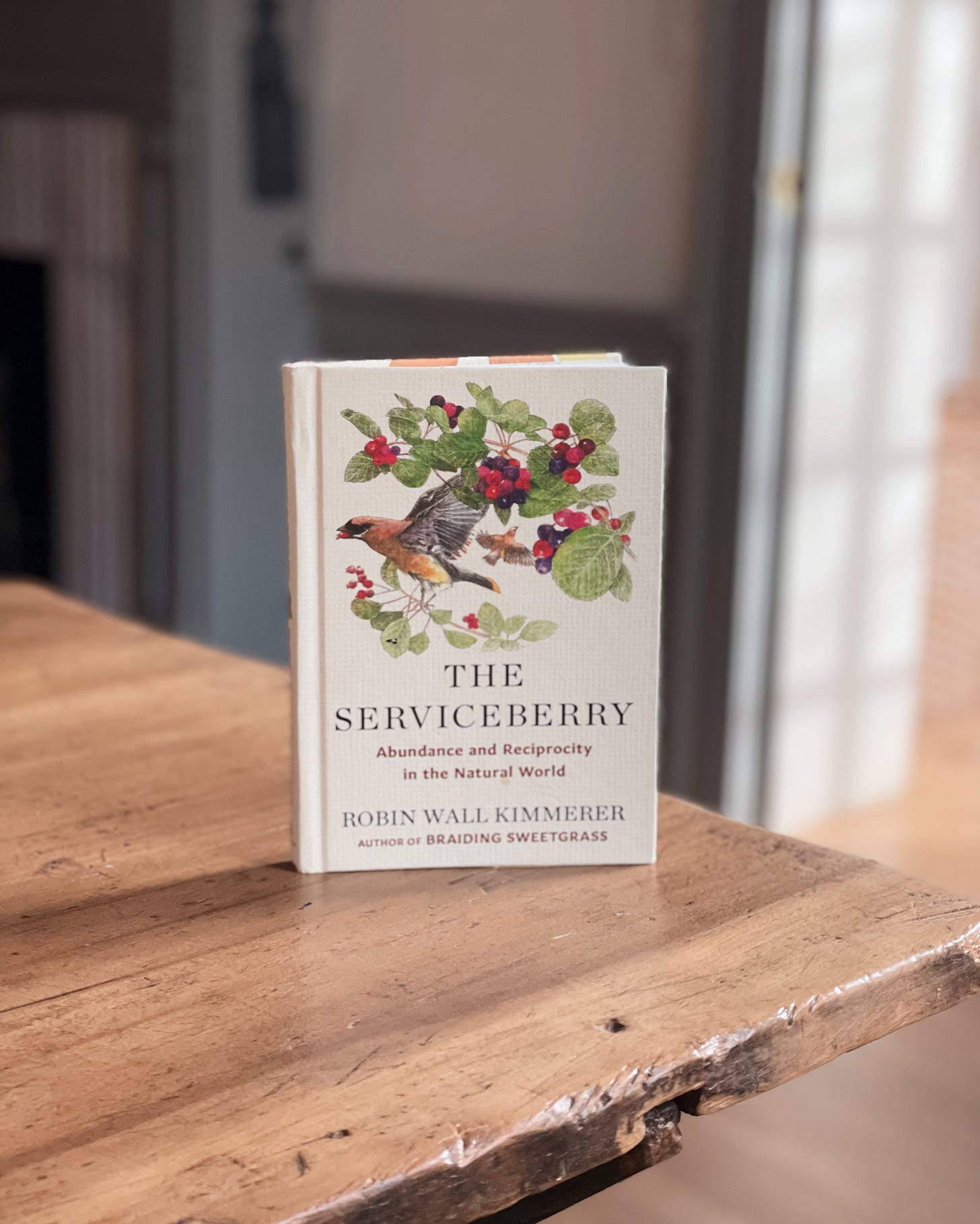Read | The Serviceberry: Abundance and Reciprocity in the Natural World by Robin Wall Kimmerer
Lessons & Takeaways from a Book Everyone Should Read
What a book! A wee pocket-sized-pal, indeed. If you’re feeling hopeless, listless, or even a little emotionally hungover from the mess 2025 has handed us so far, this short read might just be the salve you didn’t know you needed. It was for me. Weeks after turning the last page, its wisdom is still there—quietly buoying me, reminding me that there’s a better way to live, to connect, to see the world.
Robin Wall Kimmerer’s The Serviceberry: Abundance and Reciprocity in the Natural World is small in size but profound in its reach. It feels less like a book and more like a friend sitting across from you, gently nudging you to reconsider the way you’ve been moving through the world. In her signature style, Kimmerer weaves together Indigenous wisdom, ecology, and human connection to create a tapestry of thought that lingers long after you’ve finished.
Much like Braiding Sweetgrass, this book has the power to challenge everything you think you know. It looks modern scarcity right in the face and dares to say, “What if we’ve been wrong all along?” It asks us to rethink our relationship with nature—not as something separate, but as a living, breathing part of us. And, maybe most powerfully, it invites us to imagine an economy rooted in abundance and reciprocity rather than greed and extraction. It’s the kind of wisdom that feels like a gentle revolution, one where hope blooms quietly between the lines.
Reading it felt like someone flicked on a light switch in a dimly lit room. Here are my three biggest takeaways—insights that felt less like lessons and more like seeds planted in the soil of my mind, growing steadily ever since. I hope they inspire you to pick up this little treasure of a book and let its wisdom take root in your life, too.
The Economy of Abundance & Reciprocity
Kimmerer introduces the concept of an economy not built on scarcity but on abundance, as exemplified by the one small but impactful part of nature: the serviceberry tree. This particular tree produces more fruit than it can ever use, offering nourishment to birds, animals, and humans alike. It’s inherent generosity underscores a truth we often overlook: nature provides enough for all if we align with its rhythms.
This takeaway reminds me to focus less on taking and more on sharing, all the while trusting in nature’s capacity to sustain us. We need to remember that viewing life through a lens of lack often leads to feelings of scarcity, fear, and dissatisfaction. It makes us focus on what we don’t have, leading to comparison, envy, and a constant yearning for more. This mindset can create a sense of being stuck, as we fail to recognize the resources, relationships, and opportunities already available to us. It fosters a sense of limitation and encourages us to operate from a place of survival rather than flourishing.
Keep reading with a 7-day free trial
Subscribe to An Ode to Comfort Food to keep reading this post and get 7 days of free access to the full post archives.




